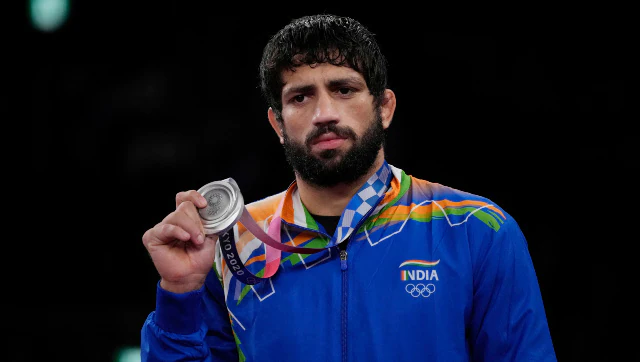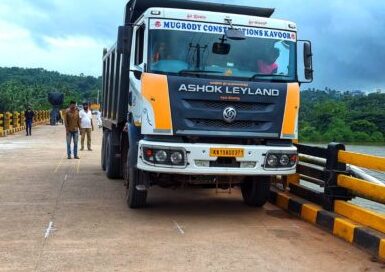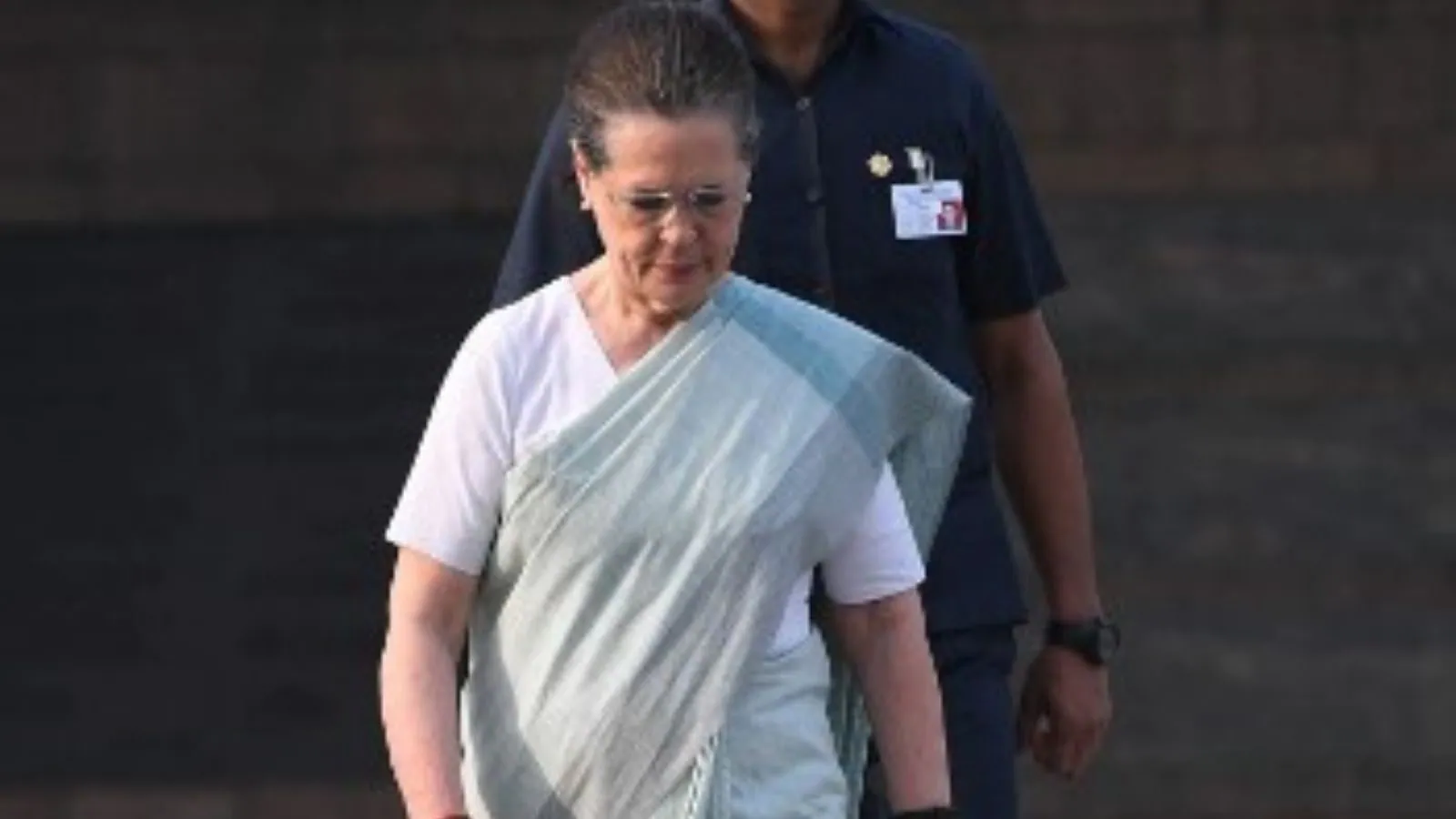For a man who has just won silver, Ravi Kumar Dahiya smiles exactly twice when talking to the media.
It has been a fair while that his final was fought and his fate was sealed, but even the air-conditioning in the Makuhari Messe Hall has not been able to dry the beads of disappointment forming on his face.
All defeats are hard to reconcile with. But defeat for Ravi has come bearing the solace of an Olympic silver medal. Ask most Indian athletes what they would do with an Olympic silver medal, and they will tell you that that medal will never leave their torso. They will go to sleep with it tucked under pillowcases. Eat meals with it on the table. Never leaving their eyesight.
On the greatest day of his life, though, Ravi has tucked the silver in his jacket pocket, where it finds company of his face mask, as he talks to the press. He’s asked where the medal is when a journalist notices it missing while he talks to the press after the medal ceremony.
“I’m happy. But this medal is not what I came here for,” he says as he holds it out for the eyes of the media, and then almost hands it out, before an alarmed volunteer rushes over to tell him to stop.
These are, after all, days of social distancing, fistbumps and elbow shakes. But Ravi has been living in a bubble of his own for a few months now, not talking to his family for quite a few weeks now.
His phone has been switched off. He’s been avoiding social media for over a year now, with a friend handling his accounts.
“It’s been nearly two years since I qualified. Since that moment I have been chasing gold for India. I’ve won silver. Maybe that’s what I deserve. Chalo. Bas theek hai,” says the man who is India’s fifth medallist in wrestling after KD Jadhav, Sushil Kumar (twice), Yogeshwar Dutt, and Sakshi Malik.
Someone points out that his defeat in the final has come against ROC’s Zavur Uguev. He’s a two-time World Championship gold medallist. Ravi has lost to him before, most prominently at the Worlds.
“Last time also I lost to him. So, this time I had prepared with him in mind. There’s still work to do, as this result shows,” he says. “There was no pressure on me fighting him.”
Ravi was in rampaging form coming into the final, beating Colombia’s Tigreros Urbano (13-2) and Bulgarian Georgi Valentinov Vangelov (14-4). Taking on Kazakhstan’s Nurislam Sanayev in the semi-final, he was trailing 2-9 at one point, but turned the match around by pinning the Kazakh wrestler, who it later transpired had bitten the Indian on the arm.
“Olympic Games hai. Koi wrestler koi kasar chodna nahi chahta [It’s the Olympics, no one wants to let go of the opportunity],” he says, and he breaks into a rare smile. “Thoda ice lagaya. Sab theek hai. Woh bite koi maine nahi rakhta [I iced it. It is all okay. Who bit whom makes no difference at the end].”
Weight worries
Ravi’s preparations coming in to Thursday were far from ideal. He was just over 60 kilograms, four kilos above the acceptable weight.
Since wrestling bouts are held over two days at Tokyo 2020, grapplers have to watch their weight on two days, rather than making weight on one day and then letting loose at meal time.
So, to avoid falling foul of the weighing scale, Ravi hit the gym, grappling with machines after a day spent outclassing every man who had stepped on the mat in front of him. He skipped dinner, then sleep evaded him for many hours, before he woke up and hit the gym again before weighing-in.
Finally, he made the weight. But when he stepped on the mat, he was beaten.
He’s asked if he would have maybe won gold if the final was held on Wednesday.
“Dekhoji, yeh kuch maine nahi rakhta hai [See, it doesn’t matter]. These things are same for both wrestlers,” he says, dismissing any attempt to find external factors for his loss. He looks at his medal wistfully, and mutters: “Yeh theek hai. But humare liye yeh itna maine nahi rakhta [This is okay but for me, this doesn’t hold that much value].”




